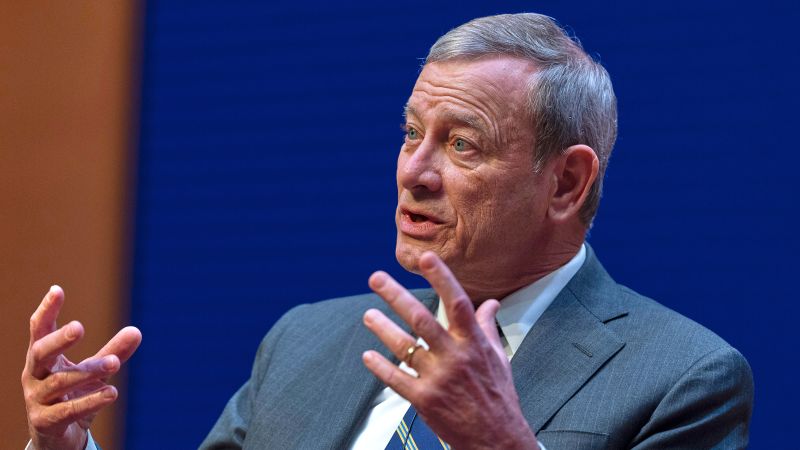Chief Justice Roberts Defends Judicial Independence Amid Political Criticism

In the aftermath of a Supreme Court term marked by contentious decisions, Chief Justice John Roberts addressed the growing political criticism of the judiciary with a tone of measured defiance. Speaking at a judges' conference in Charlotte, North Carolina, Roberts emphasized the critical role of an independent judiciary, cautioning against the dangers of political figures who express hostility towards judges. His remarks came just a day after the court concluded its term with several high-profile rulings, including a significant decision related to nationwide injunctions that affected President Donald Trump's executive actions.
Roberts, without directly referencing the court's recent decisions, underscored the importance of judges remaining impartial arbiters of the law, untainted by political disputes. "I’ve been compelled over the past few years to make statements about people on one side of the aisle – their views on judges – and on the other side," Roberts stated, addressing the assembled judges of the 4th US Circuit Court of Appeals. "It becomes wrapped up in the political dispute that a judge who’s doing his or her job is part of the problem."
This statement echoes Roberts' earlier pushback against the White House's rhetoric, which had increasingly targeted judges with threats of impeachment for rulings unfavorable to Trump. Yet, in a twist of judicial fate, Roberts and his conservative colleagues have recently handed the president victories that have muted such criticisms. The most notable of these was a 6-3 decision supporting Trump in his battle over nationwide court orders that had stalled several of his executive actions.
The ruling has sparked outrage among Democrats and progressive groups who argue that it undermines the judiciary's ability to halt presidential policies that may contravene the law. Roberts, however, warned of the potential for violence against judges, stating, "The danger, of course, is somebody might pick up on that, and we have had, of course, serious threats of violence and murder of judges just simply for doing their work."
In conversation with Judge Albert Diaz, the chief judge of the 4th Circuit, Roberts acknowledged the unusual volume of major cases the court tackled on its final day, including decisions affecting religious freedoms and internet regulations. "Things were a little crunched toward the end this year," he admitted, suggesting a need for better pacing in future terms.
Roberts candidly addressed the inevitable criticism that follows the court's decisions, attributing much of it to the disappointment of losing parties rather than any perceived injustice. "It’s not the judge’s fault that a correct interpretation of the law meant that, no, you don’t get to do this," he remarked, dismissing such criticism as unproductive venting.
As the Supreme Court continues to navigate its role in an increasingly polarized political landscape, Roberts' defense of judicial independence serves as a reminder of the delicate balance between law and politics, a balance that remains ever precarious in the halls of justice.
🔮 Fortellr Predicts
Confidence: 85%
Chief Justice John Roberts’ public defense of judicial independence against political criticisms is poised to provoke several reactionary and long-term outcomes. Firstly, Roberts' remarks are likely to foster a discourse within both political and legal communities about the boundaries of legitimate criticism versus inflammatory rhetoric. Stakeholders like legal professionals and advocacy groups are expected to increase their public statements supporting the judiciary. As the U.S. faces pronounced political polarization, Roberts' defense highlights the judiciary’s precarious position between neutrality and political influence, potentially nudging other judges and legal bodies to issue supportive statements reinforcing judicial independence. This may include coordinated actions by legal organizations to bolster messages of neutrality and independence. A likely systemic effect is an enhanced emphasis on judicial security frameworks, with discussions around the protection of judges from threats possibly resulting in legislative proposals. Cascade implications entail potential reassessments of the judiciary's protective measures, with an enhanced focus on judicial autonomy as central to maintaining U.S. constitutional checks and balances.